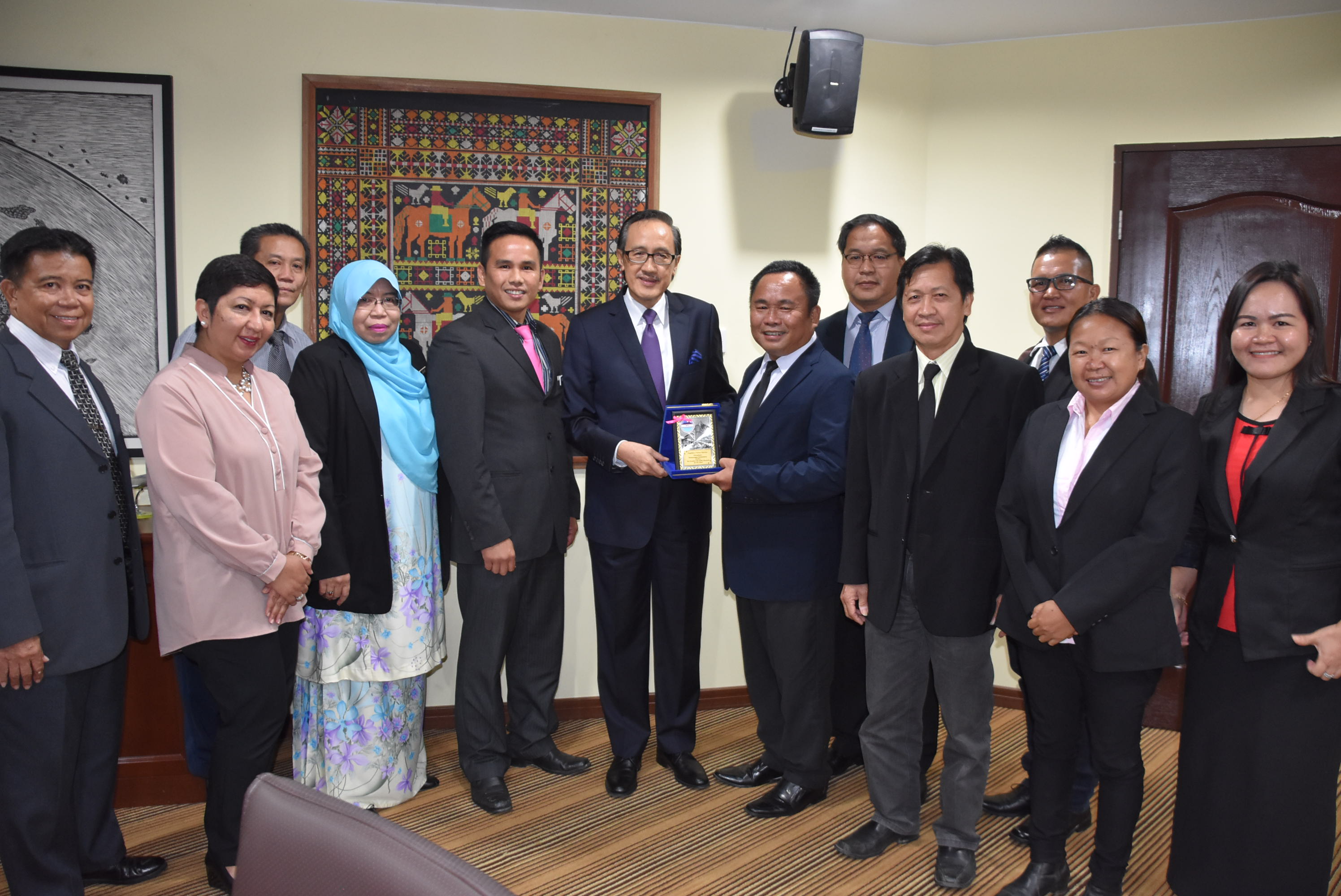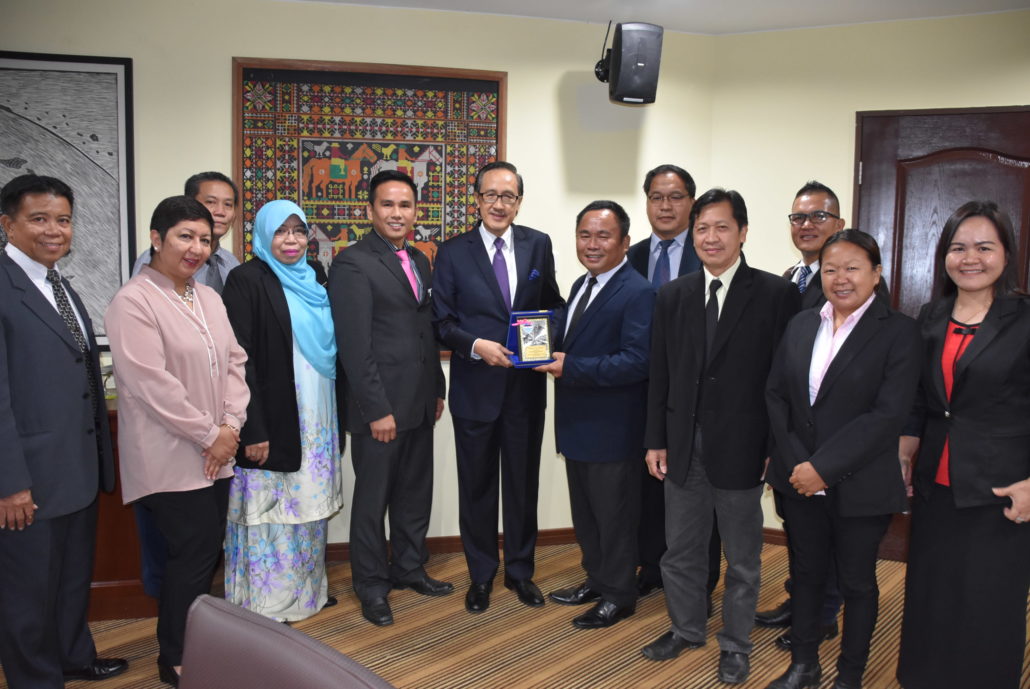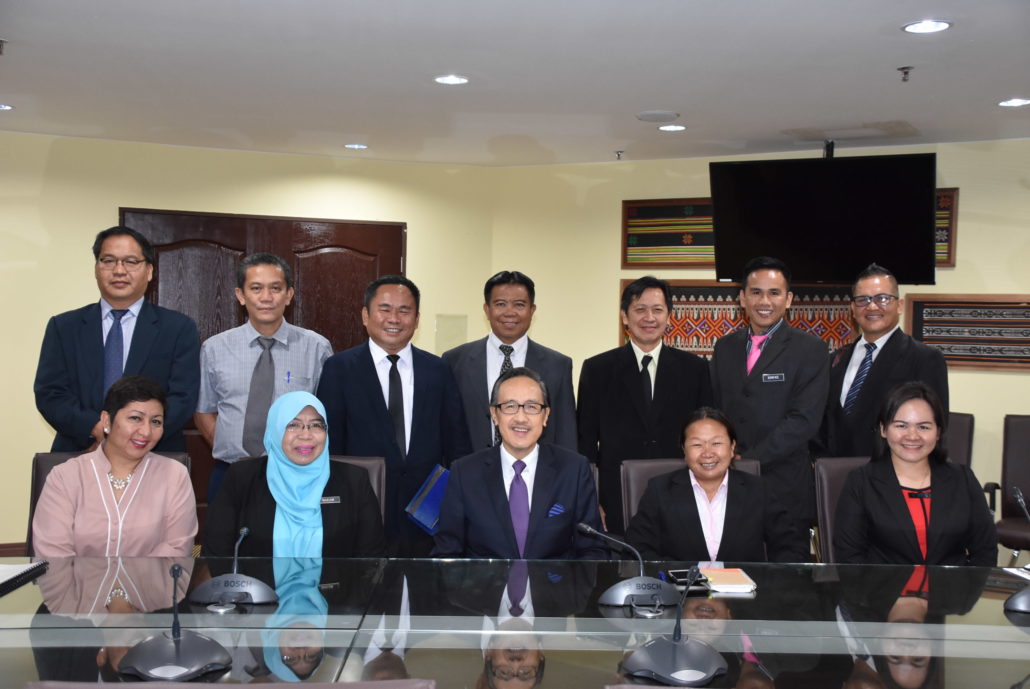Trainee STB/KePKAS2018-03-08T15:51:00+08:00Kota Kinabalu: Medical or health tourism is ongoing in Sabah given the conducive environment with foreign tourists visiting private hospitals in Sabah, said State Tourism, Culture and Environment Minister, Datuk Seri Masidi Manjun.
He also commended the organisers of the 13th Asian-Australasian Federation of Interventional and Therapeutic Neuroradiology 2018 Conference at Magellan Sutera, for making the correct choice in picking Sabah.
"Our State's natural beauty is second to none. Coupled with clean air, it is an added value to the post-surgery healing or recuperation process for foreigners who seek medical treatment in Sabah.
"Our ambience, our attractions are not available in other parts of Malaysia," he said, adding that compared to 30 years ago there are now at least five private hospitals, excluding other parts of the country.
"There is a distribution of patients to hospitals here and others in other parts of the country.
There are more options now," he said. "For those in Sumatra, the nearest health tourism destination is Penang or Melaka while those in Jakarta may opt for Singapore or Johor."
Organising Chairperson Dr Jeyaledchumy Mahadevan concurred saying presently, medical treatment is pretty expensive in Singapore, and a lot of people go to Johor Baru now.
Some 600 Interventional Neuroradiologists, Radiologists, Neurosurgeons, Neurologists, Radiology Trainees, Radiographers, Technicians, Nurses and members from the device industry from 17 countries all around the Asian region and beyond are attending the three-day Neuroendovascular Conference being held in Malaysia for the first time.
The conference with the theme "Strengthening Foundations and Exploring New Concepts" with focus on the "Asian Stroke Challenge" is organised by AAFITN in conjunction with the annual meetings of the Malaysian Society of Interventional Radiology (MYSIR) and Malaysian Congress of Radiology (MCOR).
Delegates and speakers from countries like Singapore, Thailand, Indonesia, Vietnam, India, Pakistan, Taiwan, Hong Kong, China, Korea, Japan, Australia, Dubai, South Africa, Italy, Sweden, Netherlands, France, Canada and the United States of America were impressed with Sabah's conservation and reforestation programmes.
Masidi credited the State's conservation policy of 57pc of Sabah remaining forested.
"That is very important. That is one of the reasons why one of our taglines in Sabah tourism is 'Less is More'.
The less we disturb nature, the better will be the tourism industry.
"About 20 or 30 years ago, we used to earn over a billion ringgit from timber resources.
Then in 2002, we cancelled most of the logging licences leaving a couple that is owned by the State Government but which is sustainable by itself.
"By sustainable practice, I mean we carry out the logging in such a way that there is a cycle of 99 years.
By the end of the term, we go back to the first area that we have logged so there is an endless amount of timber.
"Sabah is one of the first states in this region that obtained a certificate of sustainability by the World Timber Council," he said to applause.
Masidi reiterated that Sabah looks after its forests well, going beyond the assertion by the International Union for Conservation of Nature (IUCN) that we must leave 10pc to 15 pc of the land area to be totally protected forests.
"At this point of time, we are already at 26pc and before 2025, we will have achieved that 30pc totally protected area."
Stressing his point on the correlation with tourism, he said last year, the state earned only about RM120 million from timber while tourism receipts were in the region of RM7.8 billion.
"Sabah (with the exception of Kuala Lumpur) enjoys a thriving tourism industry.
I am saying this not because I am the Tourism Minister. God always gives us a better option.
The problem with human beings is that we are in a hurry to make money. Greed is the biggest challenge in the world today. Everybody wants something thinking they are going to die tomorrow, and that is why we take more than what we use," he quipped.
He revealed that apart from forest conservation, the State Government has planted nearly 800,000 hectares of forests. "Which means, in the future, the virgin forests will remain virgin. We will reap the timber we have planted ourselves. But more importantly, Sabah will continue to be a Nature Paradise for tourists," he said.
In addition, the State Government had last year gazetted two million acres of the sea area in the northern part of Sabah as marine reserve.
"Soon 10pc of Sabah's sea area will be a marine park and that will be the biggest in Malaysia, perhaps with the exception of Indonesia.
"Simply, we want to leave something for the future generations. While it is incumbent upon us to develop the state, the country, we must ensure that it is being developed in a way that the future generations will live a better life than us."
Urging the delegates to avail themselves of the unique experiences offered by Sabah, Masidi singled out the ancient rainforests found in Danum Valley, which are 130 million years old compared with the Amazon rainforests said to be only 70 million years old. "This is one of the best places in Sabah where you will experience Sabah's forest at its best. There, a protected area, animals will never fear you for they have never been hunted."
He said every year about 15 students pursue their doctorates in the Danum Valley, about five times the size of Singapore.
He also said that countries involved in racial or religious conflicts have something to learn from Sabah "where we have 35 ethnic groups speaking 60 languages but living together in harmony, and where Muslims and Christians live together in the family".
Saying that Time Magazine once stated that Sabah's sunset view is among the five best in the world, the Minister invited the conference participants to see it for themselves.
"God has given us so much for humanity to benefit. More than that, enjoy the warm hospitality and friendship of the people of Sabah. Have a good stay in Kota Kinabalu," he concluded. - Mary Chin
Source: Daily Express





 YB Datuk Seri Panglima Masidi Manjun, Minister of Tourism, Culture and Environment Sabah received a courtesy call from Kadamaian Tourism Association (KATA) on 6 March 2018. KATA is one of the rural tourism association which is actively promoting tourism destinations around Sabah especially attractions found at Kadamaian.
YB Datuk Seri Panglima Masidi Manjun, Menteri Pelancongan, Kebudayaan dan Alam Sekitar Sabah telah menerima Kunjungan Hormat daripada Kadamaian Tourism Association (KATA) kelmarin (6/3/2018). KATA merupakan antara persatuan pelancongan luar bandar yang sangat aktif untuk mempromosikan destinasi-destinasi pelancongan yang menarik di Sabah terutamanya produk-produk pelancongan yang ada di Kadamaian.
YB Datuk Seri Panglima Masidi Manjun, Minister of Tourism, Culture and Environment Sabah received a courtesy call from Kadamaian Tourism Association (KATA) on 6 March 2018. KATA is one of the rural tourism association which is actively promoting tourism destinations around Sabah especially attractions found at Kadamaian.
YB Datuk Seri Panglima Masidi Manjun, Menteri Pelancongan, Kebudayaan dan Alam Sekitar Sabah telah menerima Kunjungan Hormat daripada Kadamaian Tourism Association (KATA) kelmarin (6/3/2018). KATA merupakan antara persatuan pelancongan luar bandar yang sangat aktif untuk mempromosikan destinasi-destinasi pelancongan yang menarik di Sabah terutamanya produk-produk pelancongan yang ada di Kadamaian. 